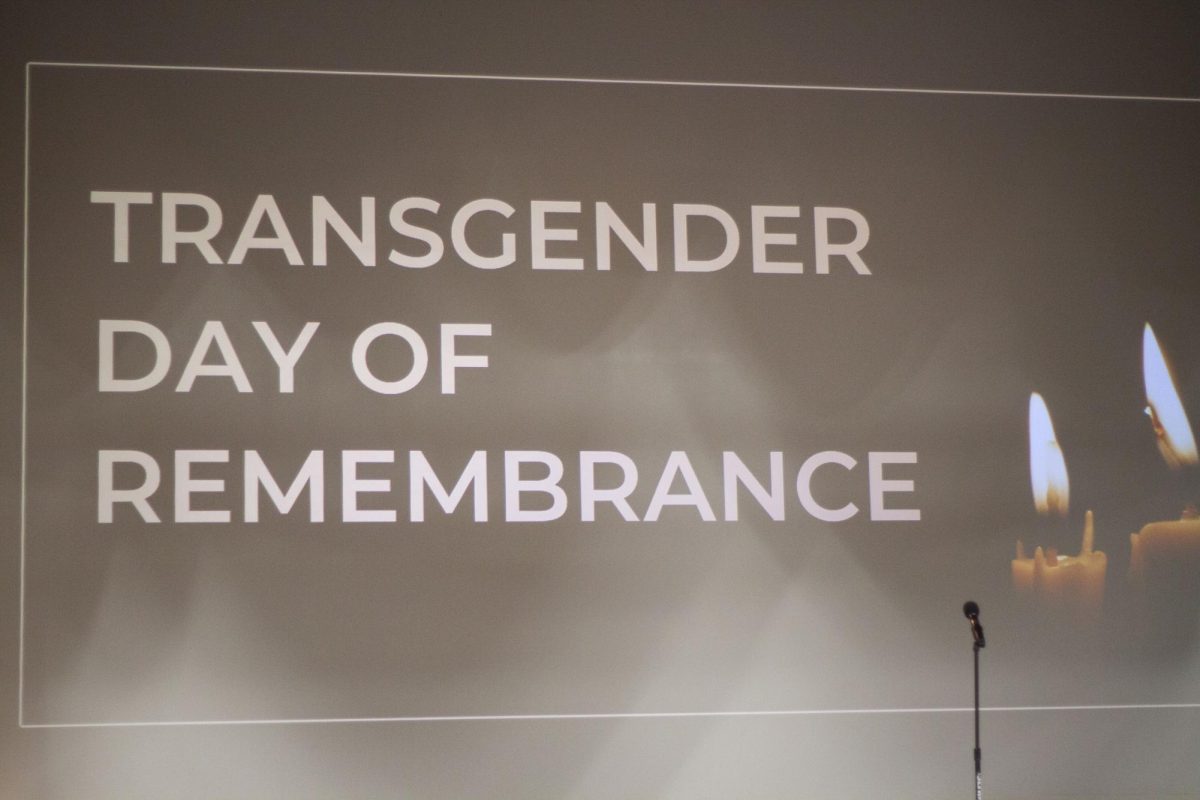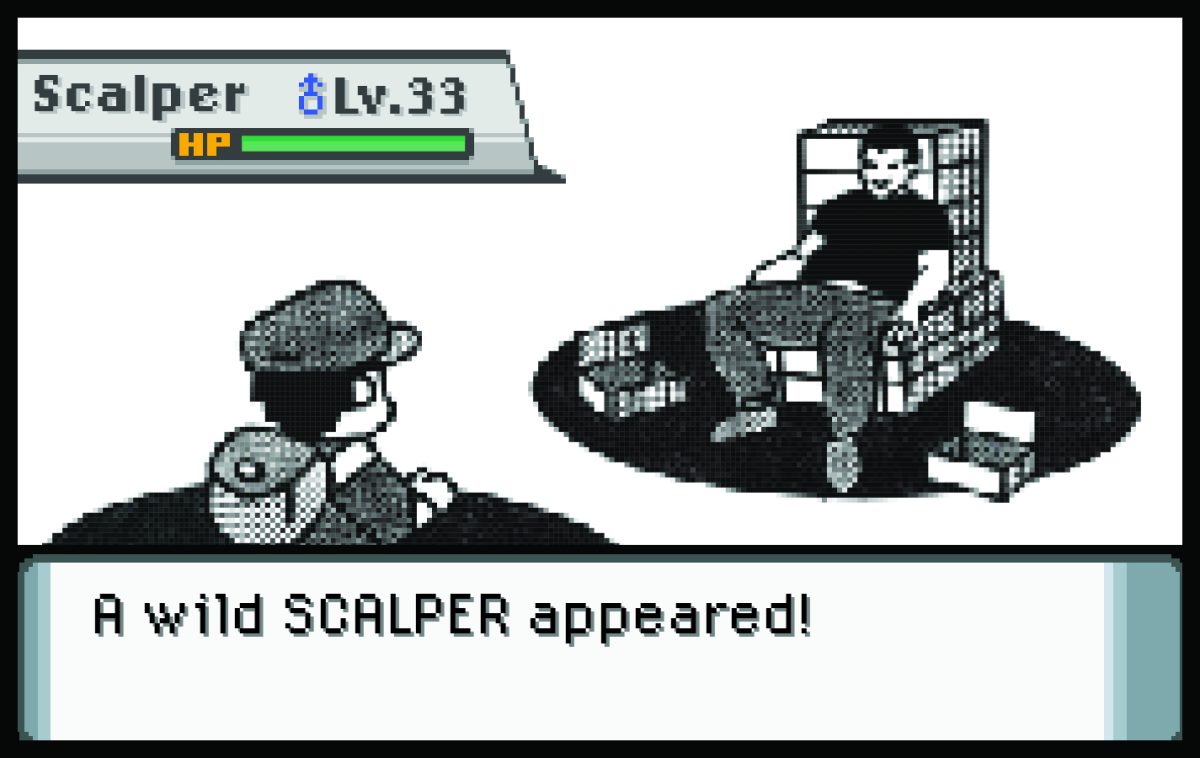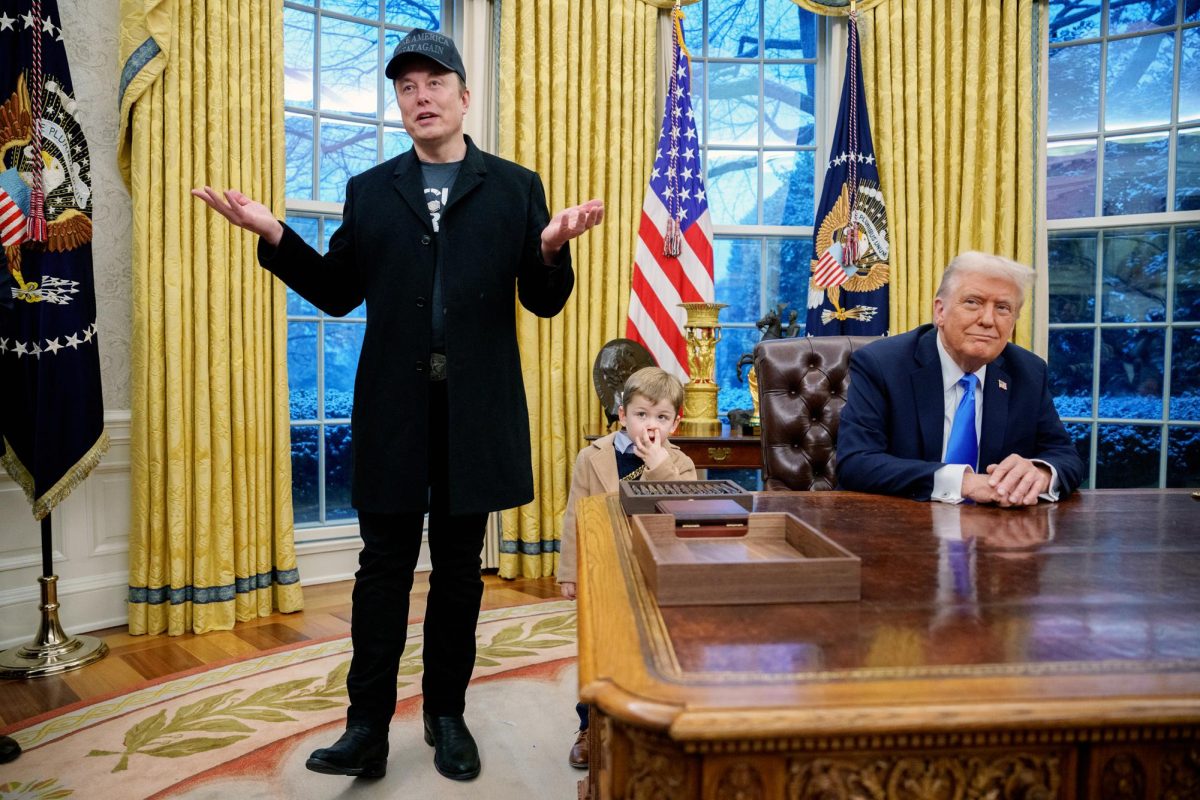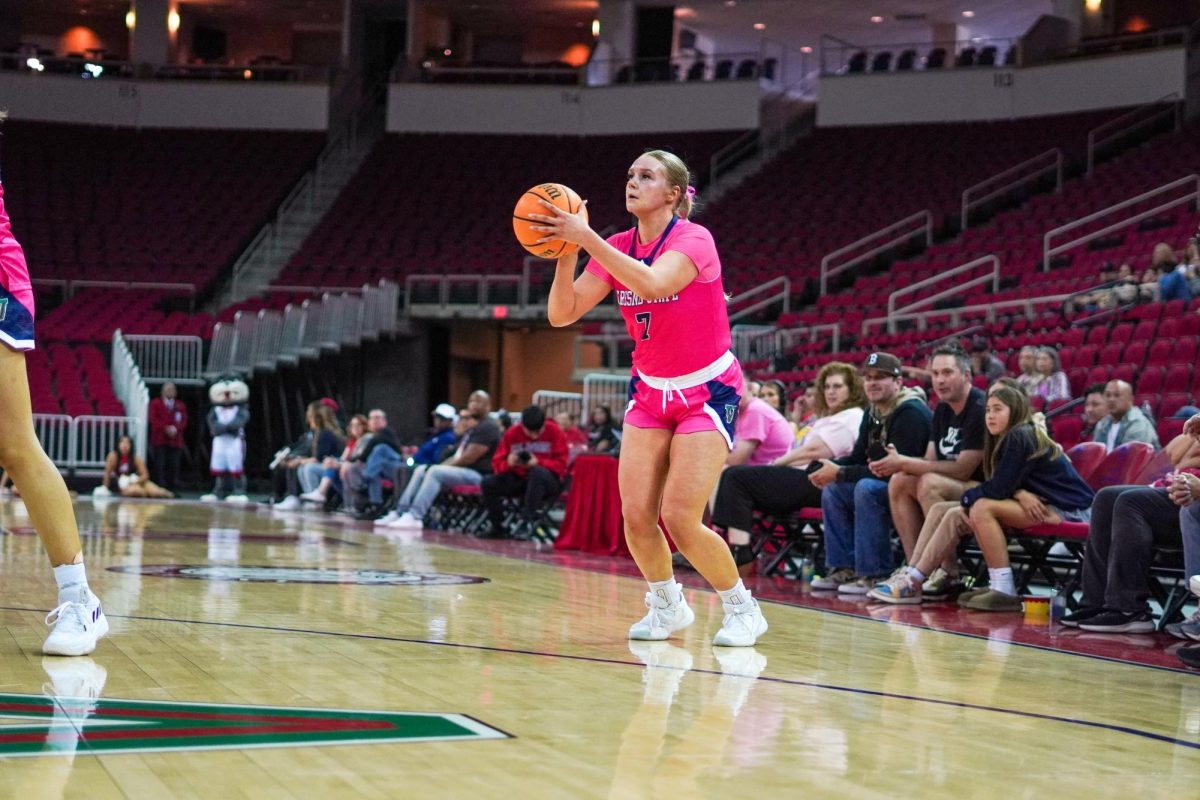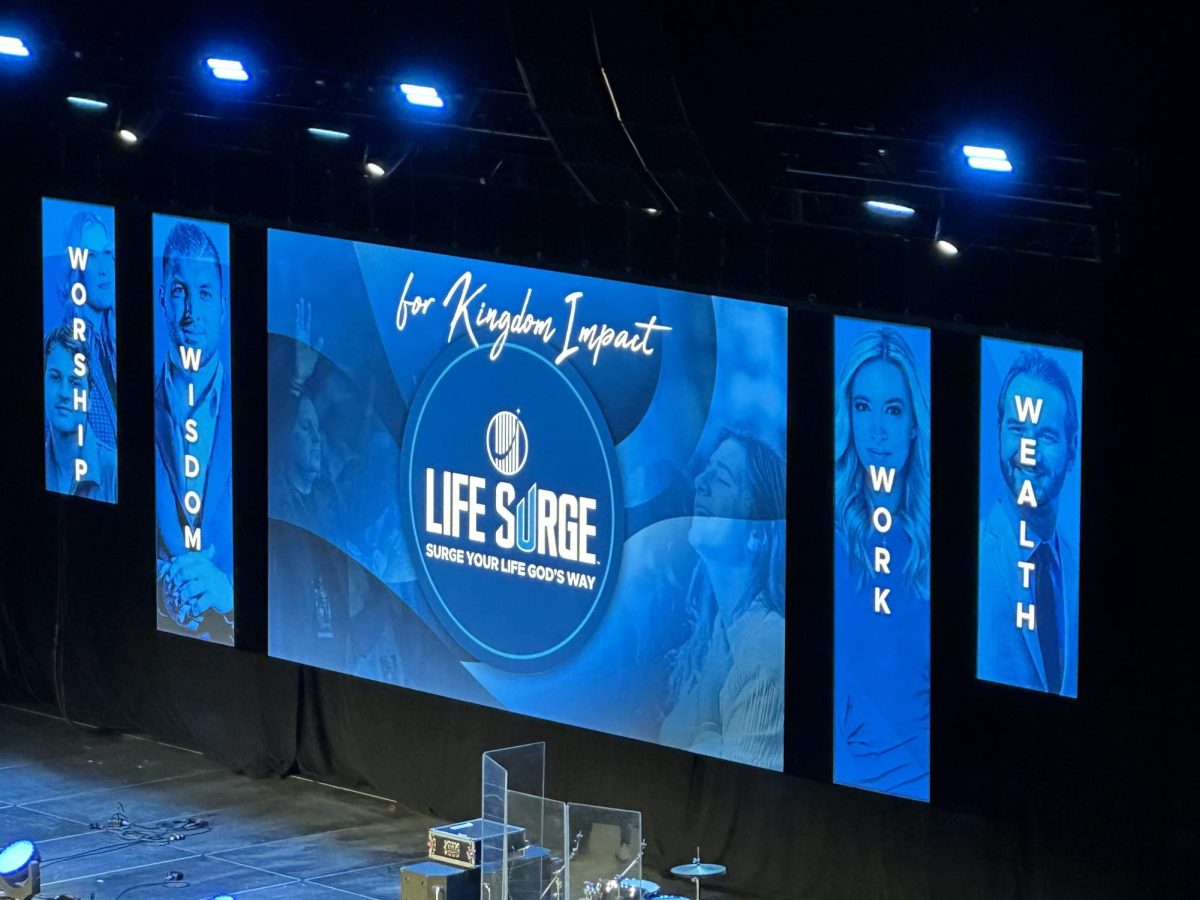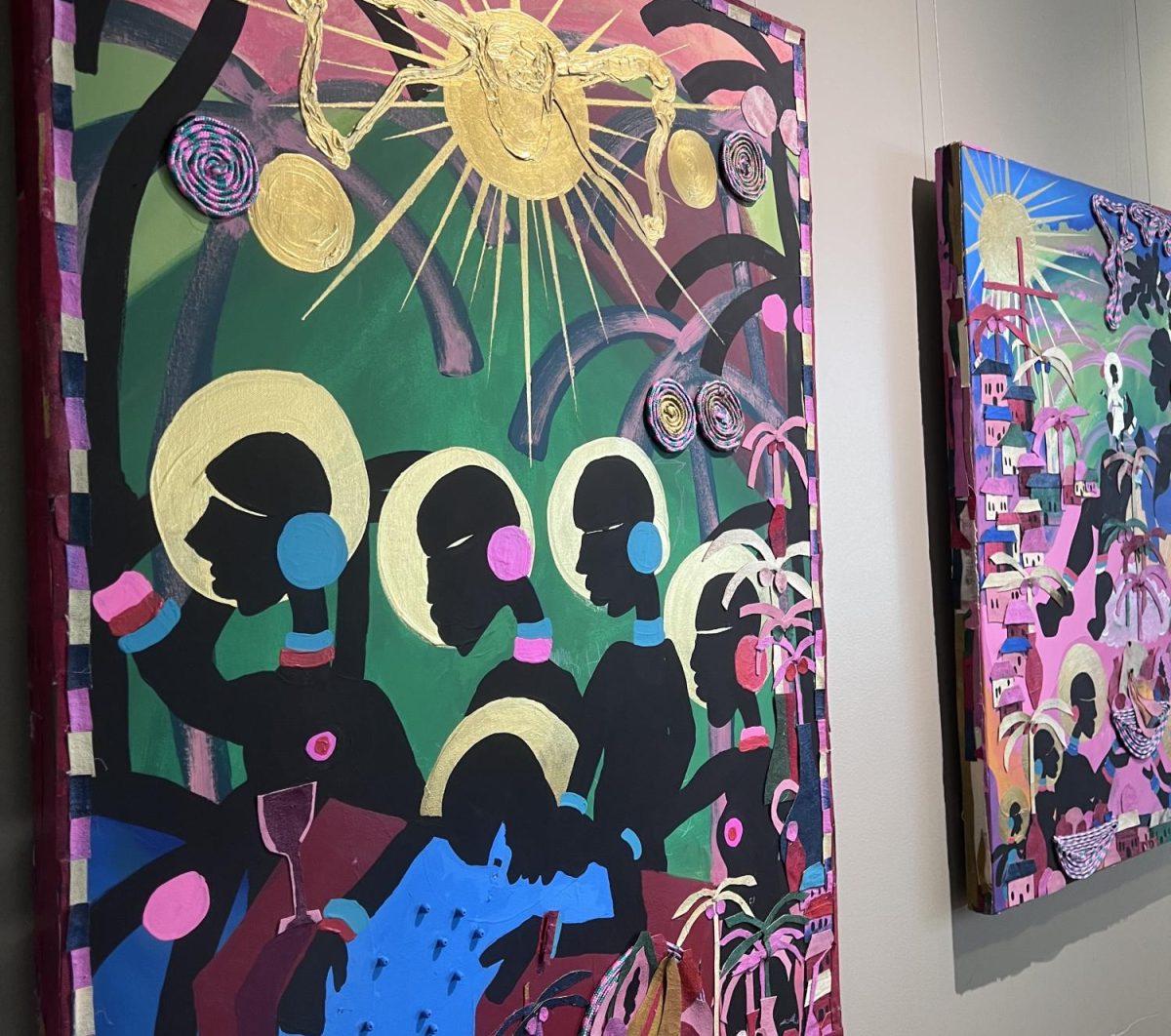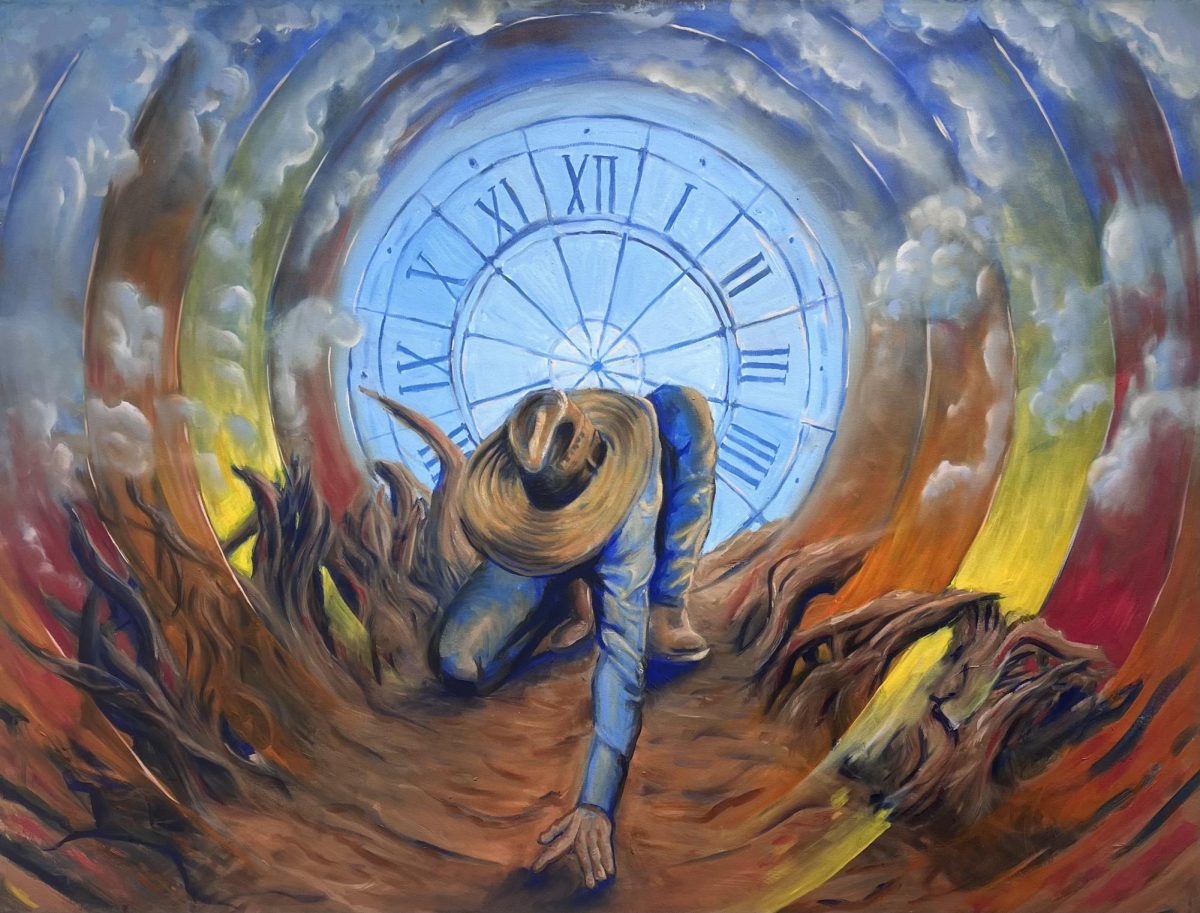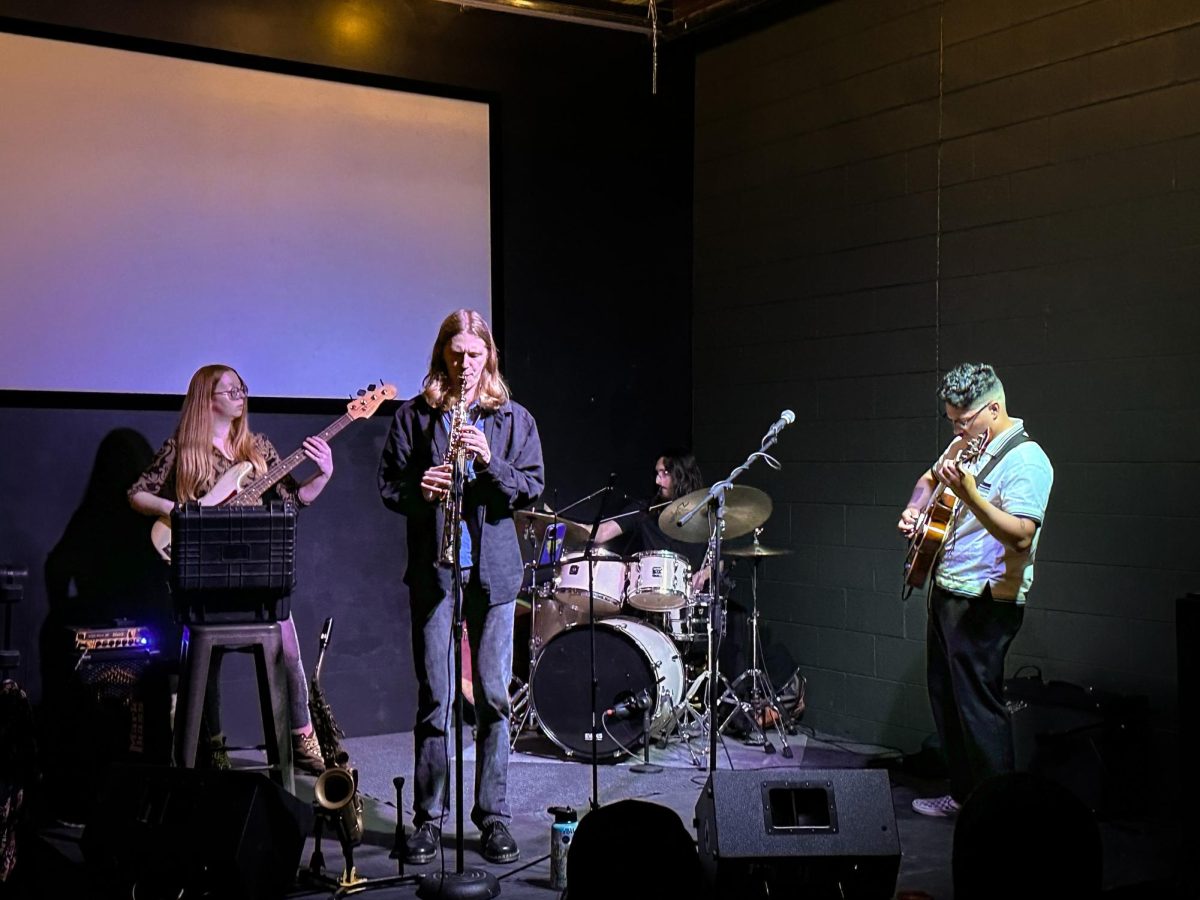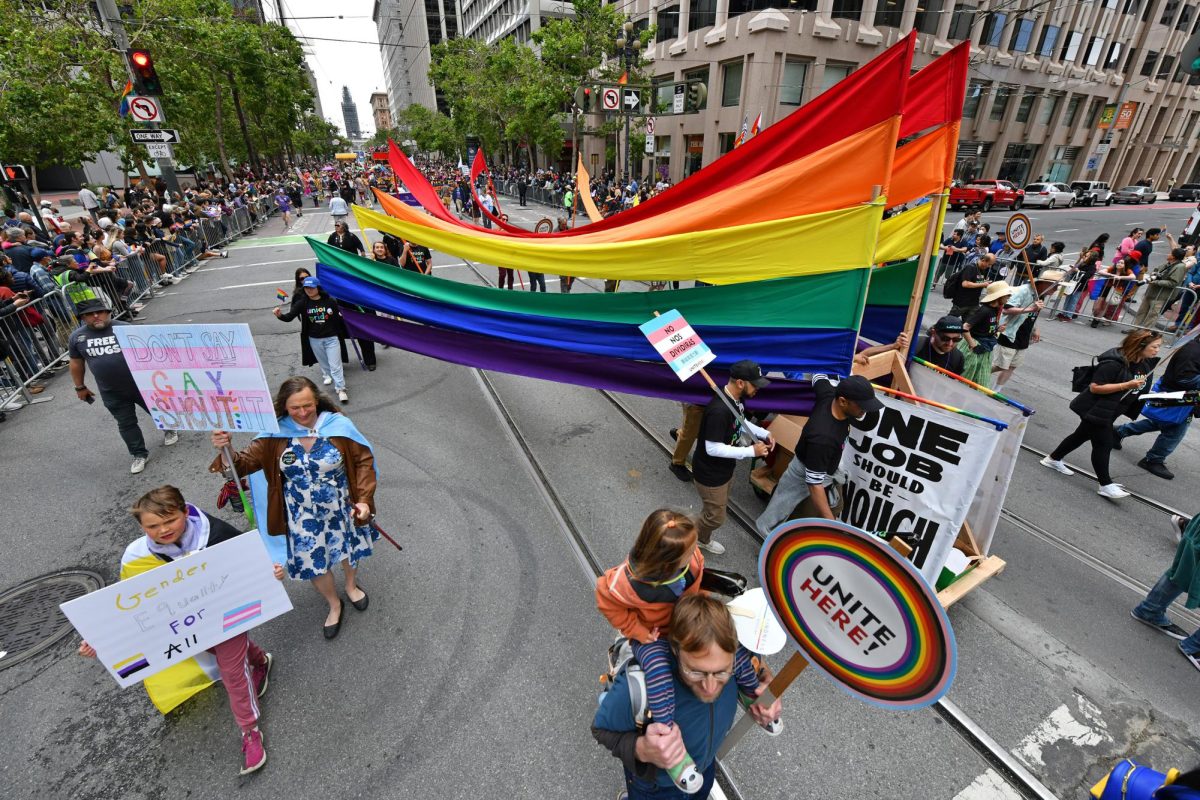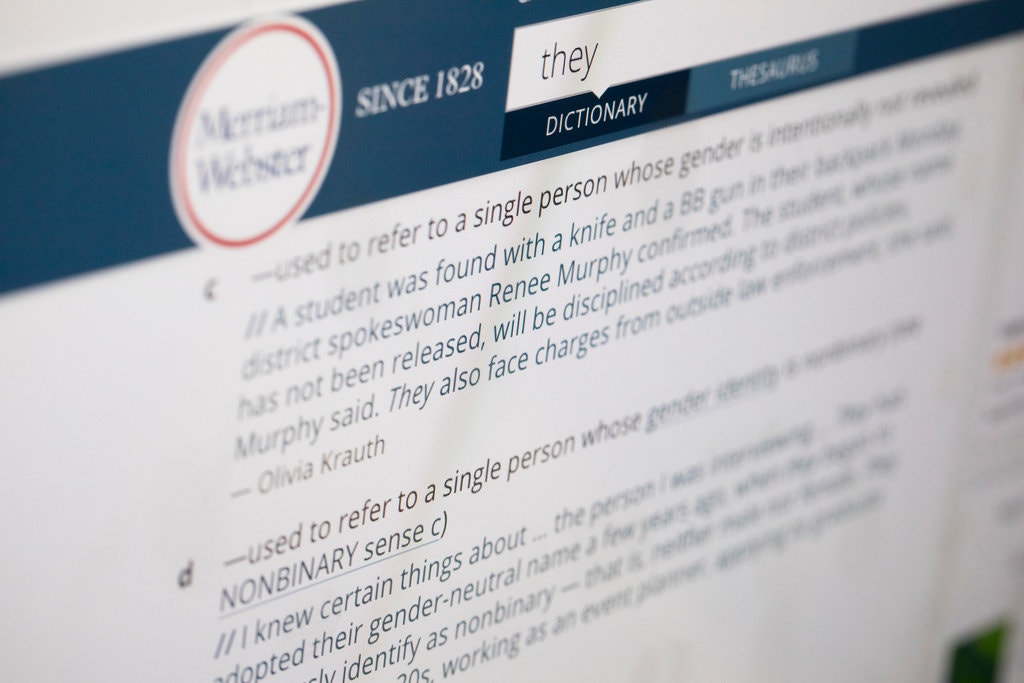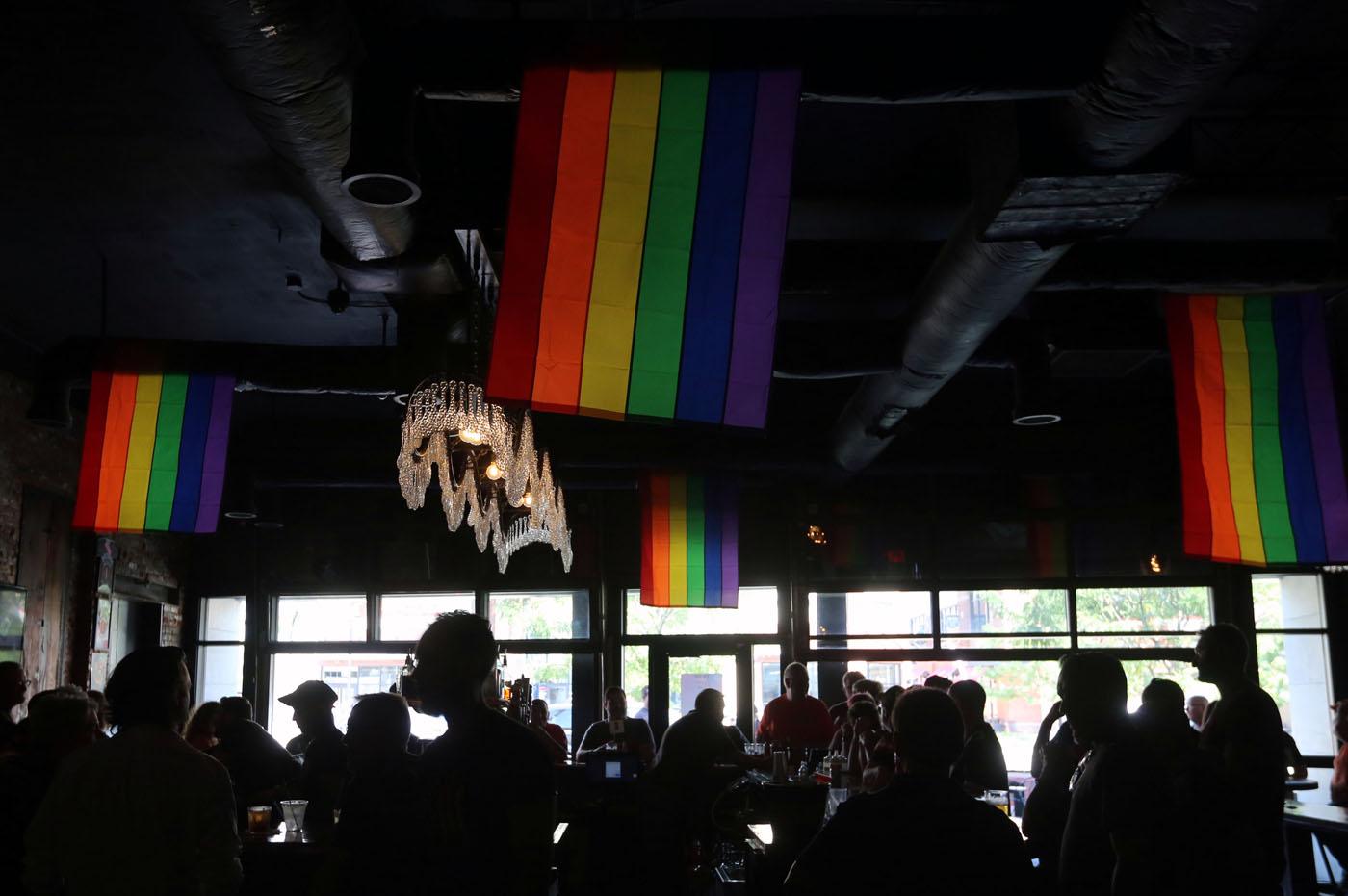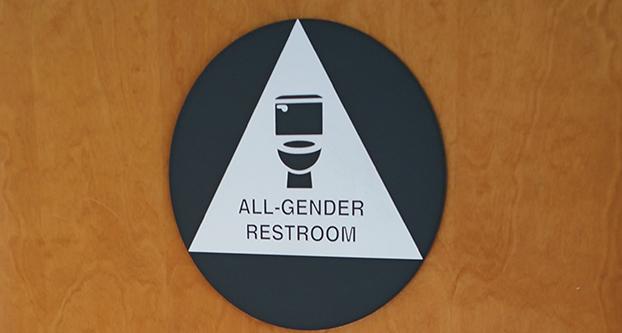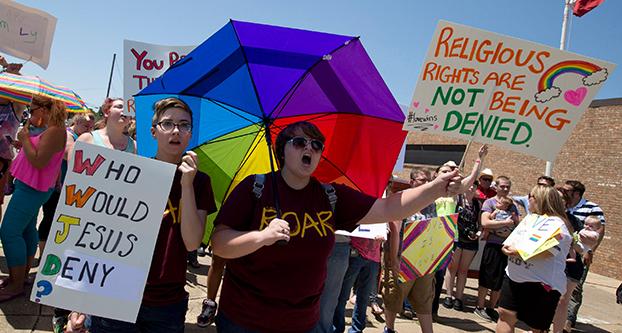Transgender Day of Remembrance (TDoR) began on Nov. 20, 1999, when transgender advocate Gwendolyn Ann Smith memorialized the life of Rita Hester, a transgender woman who was murdered in 1998.
Since then, trans lives continue to face harm. 36 transgender and gender-expansive people have been killed in the United States since the last TDoR, as stated by the Human Rights Campaign.
350 trans individuals have been killed internationally since Sept. 30, 2024, according to Transgender Europe and Central Asia (TGUE), a trans-led nonprofit.
To commemorate these lives lost by transphobic violence, Trans-E-Motion, a volunteer-run nonprofit organization based in California’s Central Valley, and Fresno State’s Cross Cultural Gender Center LGBTQ+ Programming and Services (CCGC) hosted a vigil at the Satellite Student Union. The event was sponsored by Fresno State’s department of Women’s, Gender and Sexuality Studies and Fresno State’s LGBTQ+ Allies Network.
The night was split in two sections: the resource fair from 5:30 p.m. to 6:30 p.m., followed by the program from 6:45 p.m. to 7:30 p.m.
Arien Alma Reed, chair of Trans-E-Motion and organizer of the event, explained his expectations for the gathering.
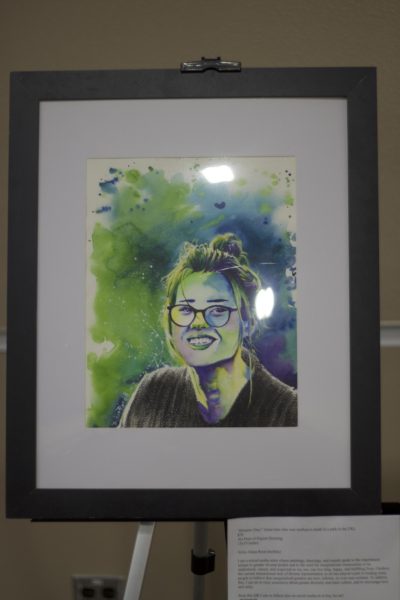
“We hope that by recognizing and honoring these people, we will help raise awareness about this issue and hopefully foster more love and kindness and unity among our community, especially for people who are transgender, because a single preventable death is one too many.”
Lining the back walls of the aisles were paintings made by Reed, while others were done by Mexican artists Marco Guitierrez. Many of the paintings displayed vibrant colors, highlighting trans individuals living their lives with affection and joy. One notable piece was a portrait of Brianna Ghey, a trans teen girl who was stabbed to death in the United Kingdom last year.
Reed shared his intentions behind his art pieces.
“I brought some of my own pieces that really feature love, connection and loss and the need for community and unity,” Reed said. He continued by expressing his gratitude for Guitierrez’s art, “I really love just how bright and happy the artwork is, and how it’s about being like together and being stronger together, and how we’re all on this journey together.”
April Taylor-Salery, treasurer of Tran-E-Motion, emphasized the importance of continuing TDoR in the coming years.
“The hope is eventually we won’t have to read names, because there won’t be names to read,” Taylor-Salery said. “And with the current political field, it doesn’t feel like that’s gonna happen anytime soon. So it’s bittersweet. It’s great to be part of a community tonight and see everybody here, but it’s also a big reminder of why we are here.”
She also spoke about the necessities of the resource fair, saying, “Most of these tables have been here every year for Transgender Day of Remembrance. We see each other out like, here in December is going to be the AIDS Walk, so we’ll see each other out for that. So a lot of these community groups, we are all kind of interconnected.”
One of these tables featured was the Family Healthcare Network, which provided information on services like medical, dental and other community resources.
Dr. Diana Howard, a faculty member for Family and Community Medicine at UCSF Fresno, shared the importance of defining gender-affirming care as primary care.
“I feel like our community is so vulnerable, so we just need more education, right, to have more inclusive care,” Dr. Howard said. “So that’s what we’re here for, just letting people know you have a safe place here. And I do gender affirming care, but I do everything, primary care in general, contraception, vaccines, annual checkups, everything.”
As 6:30 p.m. struck, the lights dimmed and the program began.
Taylor-Salery welcomed the audience and introduced Reed. He spoke about the origins of TDoR, the resources Trans-E-Motion offers, and gave a land acknowledgement to the traditional homelands of the Yokuts and Mono peoples.
Afterward, he first introduced Felix Vargas, a non-binary transgender man and the new LGBTQ+ Programs and Services Coordinator at Fresno State’s CCGC.
The core goals of the LGBTQ programs, according to Vargas, are to reach more students, faculty and community members so they can prioritize the needs of trans and gender expansive students. By organizing safe spaces like Queer Talks, a bi-weekly discussion group, they seek to raise awareness of social misconceptions of gender and sexuality.
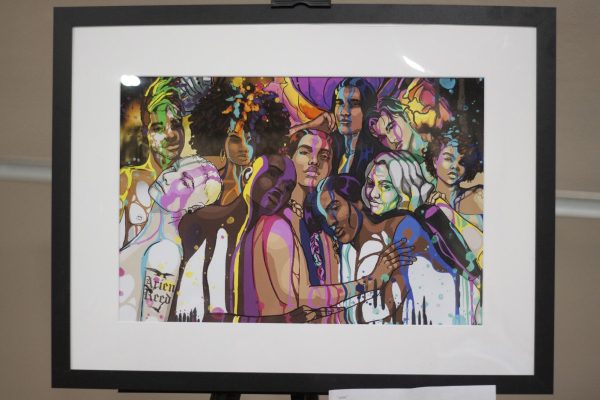
“We are students, we are organizers, we are teachers, we are healers, we are partners, we are friends, and we belong, despite persistent efforts of those who seek to harm our community, we endure and we thrive because we stand together,” Vargas said.
Then, Dr Gloria Negrete Lopez, an assistant professor in the department of Women’s Gender and Sexuality Studies, shared her support for everyone in the room and the necessity of straight, cis-gendered allyship.
“Your support is crucial, but it cannot be passive. It’s time to step up, to step into active allyship and become accomplices. This fight requires more than just sympathy. It requires action,” Dr. Negrete Lopez said.
Kaede Coronado-Acuña spoke next. They are a 25 year old non-binary person who has been an activist in the Fresno LGBTQ+ community since they were 14. Now, they work for The Source LGBTQ+ Center as a program coordinator where they support the transgender community in the South Valley.
“It is our collective responsibility to speak out against hate, advocate for justice and nurture an environment of love and respect,” Coronado-Acuña said. “We must ensure that the voices of transgender and gender expansive individuals are amplified in every space. Their experiences, insights and perspectives are vital to shaping a more equitable society.”
Fuschia, a drag performer inspired by South Asian culture presented a dance routine in a gold-embellished pink dress. The Thai dance told the story of a girl weaving silk while she waits for her lover to come back.
The next speaker was Jess Fitzpatrick, owner of Gender Euphoria LLC and the founder of Gender Alchemy. He presented his vision for a thriving LGBTQ+ community that is healthy, wealthy and well fed.
Then was a performance by Andi Biotik, the first elected non-binary Empress of the Imperial Dove Court de Fresno. In a regal red opera coat, they performed to the song “This is Me” by Keala Settle.
Faye Lewis, a black transgender woman and board member of BlaQueer Fresno, gave a touching speech highlighting the risks black trans women face in their day-to-day lives.
“It is heartbreaking, that even in the face of their strength and perseverance, lives are often cut short due to cultural transphobia, racism and misogyny,” Lewis said. “Today, we say their names and honor their memories, not as a single day of mourning, but as a call to action.”
Finally, Diana Feliz Oliva, founder and executive director of Casita Feliz, a Latin LGBT+ Community Center here in Fresno, relayed her personal story as a trans woman of color and the importance of standing up against harm.
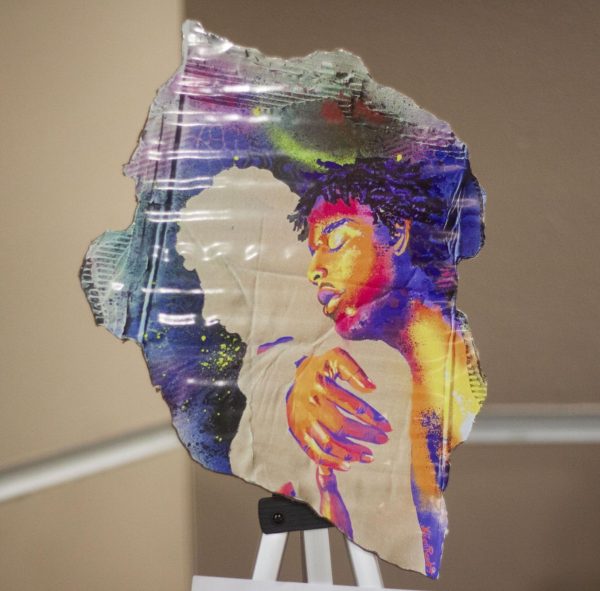
“At 7, 8, 9, years old, I was told that my existence was wrong. So I became a social advocate at a very young age, and I became a disrupter, and I became a revolutionary, and I adopted a mindset where I said ‘I’m about to f**k s**t up,’” said Oliva. “That’s the reality for many Americans that believe we’re only STD carriers, or we’re such horrible people that people rightly and deservedly need to erase and kill us in this country. I’m living proof that we are beautiful and powerful beyond measure.”
As applause ended the speeches, the lights dimmed further as it reached an expected, and somber, point in the night: the reading of trans lives lost.
Reed gave a statement before reading the names.
“Through this vigil, we express love and respect for our transgender, non-binary, gender expansive and Two Spirit communities, in the face of indifference and hatred.” Reed said
Reed, accompanied by Carlos Lopez, the secretary of Trans-E-motion, read the names slowly and with care. Soft sobs were heard in the audience as each name was called with the location and day of their death. Ending the night was a video honoring the trans lives lost internationally in places such as Mexico, Brazil and Palestine.
What punctured the heart the most were the various individuals who could only be referred to as “Name Unknown.”
When the lights turned on and the video ended, the audience could not help but hug the people closest to them. It is through these hugs that are kept memories alive, ensuring that trans lives, both past and future, will always be remembered.




